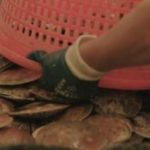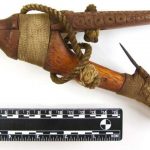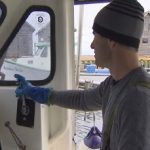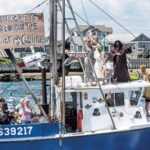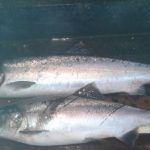Tag Archives: business
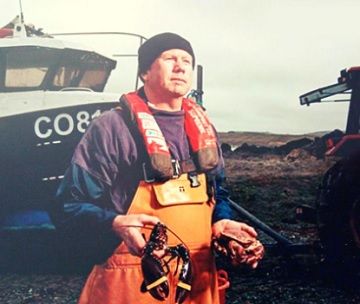
Lockdown Lobsters: How Brexit has impacted lobster fishing on the Llŷn Peninsula
Sion Williams is a third generation lobster fisherman on the Llŷn Peninsula. But in March 2020, with the onset of the pandemic, he had to restructure his business in order to adapt. “Between Brexit and Covid there was uncertainty with buyers,” When coronavirus hit, everything changed suddenly for Sion, as it did for so many other people: “All I got was a text from the traders saying ‘we don’t want anything for five weeks and maybe five months’. And that was it.” Everything was closed and they couldn’t sell. >click to read< 07:55
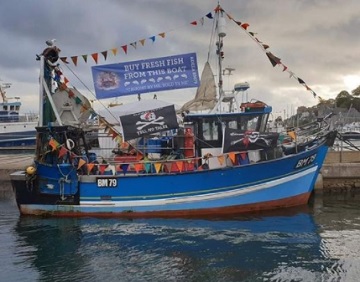
Brixham fisherman stars in new Devon and Cornwall TV series
Brixham fisherman Tristan Northway, who kept his business buoyant during lockdown by bringing his boat right up to the quayside to sell direct from the deck to his customers, will be one of the stars of a new TV series. A new season of Channel Four’s Devon and Cornwall starts on Monday June 21 at 8pm, and Tristan’s story featured in the opening episode. Tristan, described by Channel Four as a ‘maverick skipper’, was filmed on board his boat Adela, the smallest of the fleet in busy Brixham harbour. >click to read< 11:19
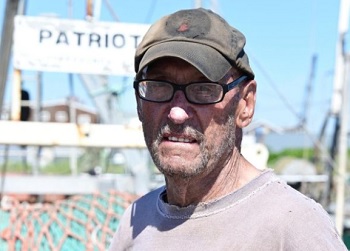
Long Island Coronavirus Hangover: Fishermen’s business remains in the doldrums even as restaurants reopen
While many local fishermen sell to local retailers, a steady local business even through the pandemic, the lion’s share of local fish go to companies that distribute to restaurants throughout the region and across the country. Three months of lockdowns over the coronavirus has backed up the market for the products, leaving warehouses for local frozen fish such as squid fully stocked, while drastically reducing demand for local clams and oysters..,, The summer is normally a prime time for fishing trawlers that harvest squid, said Greenport commercial fisherman Mark Phillips, but the market has been backed up by months of shutdowns and a closure of some export markets, including to China. Phillips said he was hopeful the start of restaurant reopening increases demand for squid, his primary fishery right now. >click to read< 07:47
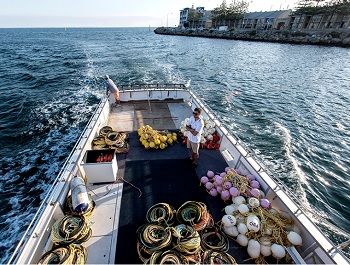
Can we really break the China habit?
China is a hard habit to break.Even after its early mishandling of the coronavirus disrupted the country’s ability to make and buy the world’s products, further exposing the faults of its authoritarian system and leading it to ratchet up its propaganda war, China’s economic power makes it the last best hope for avoiding a protracted global downturn.“When this all started, we were thinking, Where else can we go?” said Fedele Camarda, a third-generation lobster fisherman in western Australia, which sends most of its catch to China. “Then the rest of the world was also compromised by the coronavirus, and China is the one getting back on its feet.”“Although they’re just one market,” he added, “they’re one very big market.” >click to read< 10:56
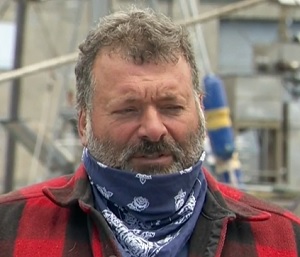
Fisherman’s Wharf: Restaurant threatens commercial fishing operation’s survival over a parking lot conflict
The parking area at Pier 47 could be used for al fresco dining as soon as next week but that space is where Giuseppe Pennisi, of Pioneer Seafoods, has been selling fresh-caught fish right off his boat for years. Now, the Port of San Francisco has ordered him to stop. “They said our business was causing problems for Scoma‘s but there’s no one even down here anymore except for people buying a few fish,” Pennisi said. Scoma’s owner Tom Creeden says they’ve submitted plans to Port of San Francisco officials to use the parking space for outdoor dining. Pioneer Seafoods will have to shut down its operations by June 15 after being given less than five days notice. It would also be a blow to Glide Memorial Church in San Francisco, which receives 3,000 pounds of fish from Pennisi every two weeks to feed the homeless. >video, click to read< 08:37
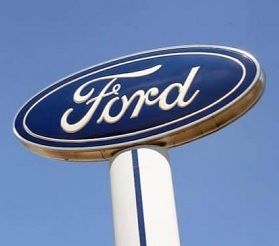
Bad lobster season affects everyone in Cape Breton
At this time of year, the local fishing wharfs are feeling the effect of the coronavirus on their bottom line. Lobster fishers are facing the reality of an overseas market that has dried up causing prices to plummet to an all-time low.,, When lobster fishermen have a bad year, everyone suffers. Car dealerships can’t count on the fishermen up-dating their trucks at the end of the season. Those new trucks will remain on the lot. The local fishermen are a generous group who give readily to local causes. You can’t give what you don’t have. A bad season affects us all. What can we do to help out? Start by eating more lobster. When lobster is cheaper than ground beef, now is the time to get a good feed. Treat yourself to lobster every week until the season is over. Order a few extra dozen and freeze for the Christmas season. By Yvonne Kennedy, >click to read< 16:08
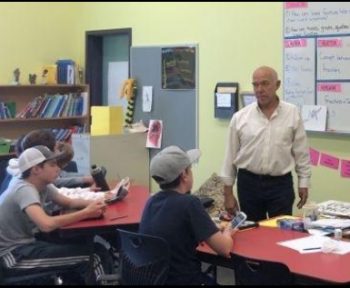
Learning finances with a fish boat captain
Teacher Emily Nowack stood at the white board, marker in hand. At the direction of Captain Doug Feeney she scribbled down his business expenses – crew, insurance, permit fees, maintenance, the list went on. Students at the Cape Cod Lighthouse Charter School did the math. They saw that Feeney’s profit was getting smaller as more expenses were subtracted. But what became clear was that transportation costs were taking a big bite out of Feeney’s take-home pay. >click to read< 12:46
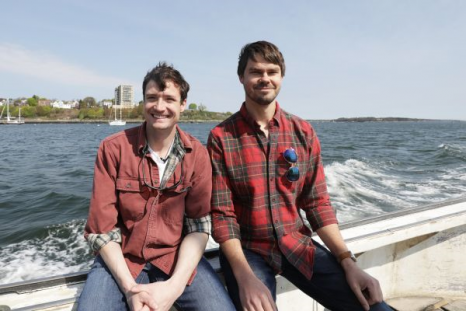
How a 25-year-old turned his ‘passion project’ into a global business with $30 million in sales
When recent college grads Luke Holden and Ben Conniff opened a hole-in-the-wall, 200-square-foot lobster shack in New York City’s East Village in the fall of 2009, they were wholly unprepared. The two had recently met through Craigslist and gave themselves a two-month time-frame to open their shack, which they dubbed “Luke’s Lobster.”,,, Holden did have an idea he was excited about: a lobster shack.,,, Holden saw a hole in the market. He called his dad, who had 50 years of experience as a Maine lobsterman, dealer and processor, and asked him to be a 50-50 investor in the first Luke’s Lobster shack. >click to read<13:43
Nets Mended, Boots Packed. Fish Boats Head For Alaska
 Big factory ships are heading out to sea, and in coming weeks, 10,000 people from Washington state will head north to the Alaska fishing grounds. Half of all the seafood caught in the U.S. comes from the Alaska fishery. Seattle is its base, and the biggest players are the companies that own catcher-processor ships. They include Trident Seafoods, Glacier Fish Company and American Seafoods Group. Crews have spent the last few weeks getting the ships ready. At Interbay’s Pier 91 on Monday, the Northern Eagle, a ship owned by American Seafoods, prepared for its journey. Read more here 19:53:34
Big factory ships are heading out to sea, and in coming weeks, 10,000 people from Washington state will head north to the Alaska fishing grounds. Half of all the seafood caught in the U.S. comes from the Alaska fishery. Seattle is its base, and the biggest players are the companies that own catcher-processor ships. They include Trident Seafoods, Glacier Fish Company and American Seafoods Group. Crews have spent the last few weeks getting the ships ready. At Interbay’s Pier 91 on Monday, the Northern Eagle, a ship owned by American Seafoods, prepared for its journey. Read more here 19:53:34
NovaScotia: Fishing is good, business is rough
 BAYFIELD — Brendan Doyle has a few hundred square yards of bottom to call his own. For nine years, every dollar he’s hauled aboard the Dethadol, Gaelic for “What’s goin’ on,” has gone to pay for his boat and licence. Meanwhile, Doyle is paying $25,000 a year on his licence and another $10,000 annually for his boat. Then there’s $10,000 during his two-month season for bait, $4,500 for fuel and $14,000 for crew. His big diesel motor is 7,400 hours into an estimated life expectancy of 10,000 hours — it’ll cost $45,000 to replace. Then there’s licensing fees, wharf fees and a thousand other costs that pile up. continued
BAYFIELD — Brendan Doyle has a few hundred square yards of bottom to call his own. For nine years, every dollar he’s hauled aboard the Dethadol, Gaelic for “What’s goin’ on,” has gone to pay for his boat and licence. Meanwhile, Doyle is paying $25,000 a year on his licence and another $10,000 annually for his boat. Then there’s $10,000 during his two-month season for bait, $4,500 for fuel and $14,000 for crew. His big diesel motor is 7,400 hours into an estimated life expectancy of 10,000 hours — it’ll cost $45,000 to replace. Then there’s licensing fees, wharf fees and a thousand other costs that pile up. continued

































